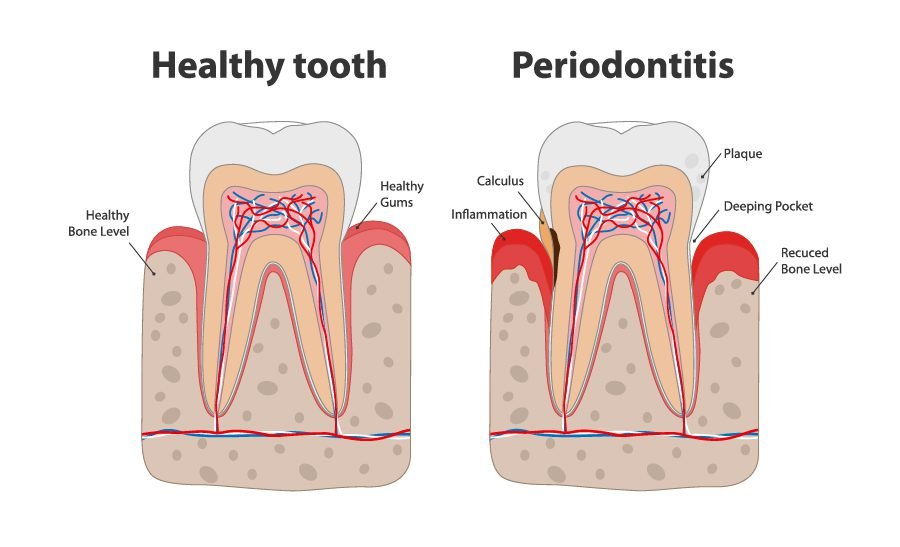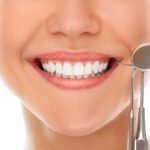Table of Contents
Common Causes of Dental Problems
Poor oral hygiene practices, such as irregular brushing and flossing, are common culprits behind dental problems. Neglecting these essential routines allows bacteria to thrive in the mouth, leading to plaque buildup, cavities, and gum disease. Additionally, consuming sugary and acidic foods without proper dental care can erode tooth enamel, making teeth more vulnerable to decay and infections.

Another significant factor contributing to dental issues is lifestyle habits, including smoking and excessive alcohol consumption. These habits not only stain teeth but also weaken the immune system, making it harder for the body to fight off oral infections. Furthermore, these behaviors can hinder the healing process after dental procedures, prolonging recovery times and increasing the risk of complications.
Effects of Stress on Oral Health
Chronic stress can have a significant impact on your oral health, manifesting in various ways that can compromise the integrity of your teeth and gums. One of the most common effects of stress on oral health is teeth grinding or bruxism. This involuntary clenching and grinding of teeth, often during sleep, can wear down enamel, leading to tooth sensitivity, jaw pain, and even cracked teeth.
Moreover, the link between stress and gum disease is well-documented. Increased levels of stress can weaken the immune system, making it harder for the body to fight off bacterial infections in the gums. This can result in inflammation, redness, bleeding, and eventually, gum disease if left untreated. Understanding how stress affects your oral health is crucial in implementing preventive measures and seeking timely intervention to maintain a healthy smile.
Understanding the Link Between Stress and Dental Health
Chronic stress can have a profound impact on oral health, leading to a range of dental issues. When individuals experience prolonged periods of stress, they may be more prone to clenching or grinding their teeth, known as bruxism. This repetitive behavior can cause wear and tear on the teeth, leading to fractures, chips, or even loosening of the teeth over time. Additionally, stress can contribute to an increased risk of developing gum disease, as it weakens the immune system and impairs the body’s ability to fight off infections in the gums. This can result in red, swollen gums, bleeding during brushing or flossing, and eventual tooth loss if left untreated.

Furthermore, stress can also impact the development of cavities due to changes in saliva production and composition. High levels of stress can lead to a decrease in saliva flow, which plays a crucial role in neutralizing acids and protecting teeth from decay. As a result, individuals experiencing chronic stress may be at a higher risk of developing cavities, particularly if they consume sugary or acidic foods frequently. Understanding the link between stress and dental health is crucial in addressing these issues and implementing strategies to manage stress effectively to preserve oral health.
How Stress Contributes to Teeth Grinding
Teeth grinding, also known as bruxism, is often linked to stress and anxiety. The relationship between stress and bruxism is significant, as heightened levels of stress can lead to this harmful habit. When individuals are under stress, they may clench or grind their teeth unconsciously, particularly during sleep. This continuous pressure and friction on the teeth can result in wear and tear, leading to various dental issues over time.
The mechanism behind stress-induced teeth grinding is complex and involves the activation of the body’s stress response system. The release of stress hormones, such as cortisol, can trigger muscle tension and hyperactivity, including in the jaw muscles. This increased muscle activity can culminate in the grinding or clenching of teeth, causing strain on the jaw joint and dental structures. Understanding the role of stress in contributing to teeth grinding is crucial in addressing and mitigating this damaging oral habit effectively.
The Role of Stress in Gum Disease
Stress is known to impact various aspects of our health, and this includes its role in the development and progression of gum disease. Research has shown that stress can weaken the body’s immune system, making it harder to fight off infections, including those that affect the gums. When under stress, the body releases hormones such as cortisol, which can increase inflammation throughout the body, including in the gums. This chronic inflammation can contribute to gum disease by weakening the gum tissue and making it more susceptible to infection.

Additionally, stress can affect oral hygiene habits, leading to poor dental care practices such as irregular brushing and flossing. Neglecting oral hygiene can result in the buildup of plaque and bacteria along the gum line, which in turn can lead to gum disease. Furthermore, individuals under stress may also be more likely to engage in harmful habits such as smoking or consuming sugary foods and drinks, which are known risk factors for gum disease. Overall, the link between stress and gum disease highlights the importance of managing stress effectively to maintain optimal oral health.
How Stress Can Lead to Cavities
Stress can have a significant impact on your oral health, including an increased risk of developing cavities. When stress levels are high, the body’s immune system may be compromised, making it harder to fight off harmful bacteria in the mouth. Additionally, people under stress often turn to sugary or acidic foods and drinks as a coping mechanism, which can contribute to enamel erosion and cavities.
Moreover, stress can lead to changes in saliva production and composition, creating an environment more conducive to the growth of cavity-causing bacteria. Chronic stress can also cause individuals to neglect their oral hygiene routine, further increasing the likelihood of developing cavities. It is crucial to recognize the connection between stress and oral health issues like cavities and implement strategies to manage stress effectively to protect your smile.
Impact of Stress on Temporomandibular Joint Disorder
Temporomandibular Joint Disorder (TMJ) is a condition affecting the jaw joint and the muscles that control jaw movement. Stress has been found to be a significant contributing factor to the development and exacerbation of TMJ disorder. When individuals are under stress, they may unconsciously clench their jaws or grind their teeth, putting excessive pressure on the temporomandibular joint. This repetitive behavior can lead to pain, inflammation, and dysfunction of the jaw joint, resulting in TMJ disorder.
Moreover, stress can also manifest physically in the form of muscle tension in the jaw and face, further aggravating TMJ symptoms. The connection between stress and TMJ disorder underscores the importance of addressing stress management techniques as part of the treatment plan for individuals suffering from this condition. By learning to manage stress through relaxation techniques, physical therapy, and mindfulness practices, patients may experience a reduction in TMJ-related pain and discomfort.
Signs and Symptoms of Stress-Related Dental Issues
Stress can manifest itself in various ways, including impacting your dental health. One common sign of stress-related dental issues is teeth grinding, also known as bruxism. This involuntary habit often occurs during sleep or times of heightened stress, leading to worn-down teeth, jaw pain, and headaches. If you wake up with a sore jaw or notice increased tooth sensitivity, it could be attributed to stress-induced teeth grinding.
Another symptom to watch out for is the development of canker sores or cold sores in your mouth. Stress weakens the immune system, making you more susceptible to these painful lesions. Additionally, stress can contribute to poor oral hygiene habits, such as neglecting regular brushing and flossing, which can result in an increased risk of cavities and gum disease. If you find yourself experiencing these oral health issues alongside periods of elevated stress, it may be time to address the root cause and seek ways to manage your stress levels effectively.
| Signs and Symptoms | Description |
|---|---|
| Teeth Grinding (Bruxism) | – Clenching or grinding of teeth, especially during sleep |
| – Worn tooth enamel | |
| – Tooth sensitivity | |
| – Jaw pain or tightness | |
| – Headaches, especially in the morning | |
| – Fatigue or stiffness of the jaw muscles | |
| Temporomandibular Joint Disorder | – Jaw pain or tenderness |
| (TMJ Disorder) | – Difficulty or discomfort while chewing |
| – Clicking, popping, or grating sounds in the jaw joint | |
| – Locking of the jaw, making it difficult to open or close | |
| Dental Erosion | – Thinning or wearing away of tooth enamel |
| – Increased tooth sensitivity to hot, cold, or sweet foods | |
| – Yellowing or discoloration of teeth | |
| – Cracks or fractures in teeth | |
| Mouth Sores | – Painful ulcers or lesions in the mouth |
| – Difficulty in eating or speaking | |
| – Irritation or burning sensation around the sores | |
| Tooth Decay | – Cavities or dental caries |
| – Tooth sensitivity | |
| – Pain or discomfort while chewing or drinking | |
| – Visible holes or pits in the teeth |
Tips for Managing Stress to Preserve Your Smile
Managing stress is crucial for maintaining good oral health and preserving your smile. Here are some practical tips to help you reduce stress levels and protect your teeth and gums:
1. Practice relaxation techniques such as deep breathing, meditation, or yoga to calm your mind and body.
2. Regular exercise can help release tension and promote overall well-being, which in turn benefits your oral health. Ensure you maintain a balanced diet rich in nutrients to support your body in coping with stress.
3. Get an adequate amount of sleep each night as lack of sleep can contribute to heightened stress levels
4. Identify stress triggers and develop strategies to manage them effectively. Seeking professional help from a therapist or counselor can also be beneficial in addressing stress-related issues.
5. Take time for self-care activities that you enjoy, whether it’s reading a book, spending time with loved ones, or engaging in hobbies. Remember to prioritize your mental health, as it directly impacts your oral health.
6. Stay hydrated and limit consumption of sugary and acidic beverages that can harm your teeth. Practice good oral hygiene habits, including brushing and flossing regularly, to maintain a healthy smile.
7. Consider seeking support from friends, family, or support groups to help you navigate through stressful situations. Remember, managing stress is essential for your overall well-being, including your dental health.
Importance of Regular Dental Check-ups
Regular dental check-ups are a fundamental aspect of maintaining optimal oral health. These routine visits allow dentists to detect and address any potential issues before they escalate into more serious problems. By undergoing regular examinations, individuals can prevent the development of complex dental issues and maintain a healthy smile. Early intervention through check-ups can save patients from experiencing pain, discomfort, and costly treatments in the future.
In addition to identifying and treating dental problems, regular dental check-ups also play a crucial role in preventing conditions such as gum disease and cavities. Professional cleanings performed during these visits help remove plaque and tartar buildup, reducing the risk of oral infections. By staying committed to regular check-ups, individuals can preserve the integrity of their teeth and gums, ensuring long-term oral health and overall well-being.
Ways to Reduce Stress in Your Daily Routine
To reduce stress in your daily routine, it is essential to prioritize self-care practices that promote relaxation and well-being. Start by incorporating mindfulness techniques, such as deep breathing exercises or meditation, into your daily schedule. These practices can help calm your mind and reduce stress levels, ultimately benefiting your oral health.
Additionally, engaging in regular physical activity can have a significant impact on stress reduction. Exercise releases endorphins, which are known as “feel-good” hormones that can help elevate mood and alleviate stress. Whether it’s a brisk walk, yoga session, or a workout at the gym, staying active can not only improve your overall health but also contribute to a healthier smile.
| Strategy | Description |
|---|---|
| Practice deep breathing | Take slow, deep breaths to activate the body’s relaxation response and reduce stress levels. |
| Exercise regularly | Engage in physical activity to release endorphins, reduce tension, and improve overall mood. |
| Maintain a healthy diet | Eat a balanced diet rich in fruits, vegetables, whole grains, and lean proteins to support your body’s natural stress response. |
| Get enough sleep | Aim for 7-9 hours of quality sleep per night to allow your body and mind to rest and rejuvenate. |
| Practice mindfulness meditation | Set aside time each day to focus on the present moment, allowing thoughts and emotions to pass without judgment. |
| Establish boundaries | Learn to say no to commitments that cause unnecessary stress and prioritize activities that bring you joy and fulfillment. |
| Take regular breaks | Incorporate short breaks throughout your day to rest, recharge, and prevent burnout. |
| Simplify your schedule | Streamline your daily tasks and commitments to reduce overwhelm and create more balance in your life. |
| Stay organized | Use planners, calendars, and to-do lists to manage your time effectively and minimize stress from feeling overwhelmed. |
| Practice gratitude | Cultivate a mindset of gratitude by focusing on the positive aspects of your life and expressing appreciation for the things you have. |
| Engage in hobbies and leisure activities | Make time for activities you enjoy, whether it’s reading, gardening, painting, or spending time with loved ones. |
Healthy Habits for Maintaining Dental Health
Maintaining good dental health is crucial for overall well-being. Adopting healthy habits can significantly contribute to a radiant smile and strong teeth. Brushing your teeth twice a day, using fluoride toothpaste, and flossing daily are essential practices for preventing cavities and gum disease. Additionally, incorporating mouthwash into your oral hygiene routine can help eliminate bacteria and freshen your breath.
Ensuring a balanced diet rich in fruits, vegetables, and calcium is fundamental for maintaining dental health. Limiting sugary and acidic foods can prevent tooth decay and erosion. Regular visits to your dentist for professional cleanings and check-ups are vital for detecting any issues early and addressing them before they worsen. By following these healthy habits, you can safeguard your dental health and preserve your beautiful smile for years to come.
Professional Treatments for Stress-Related Dental Problems
For individuals experiencing stress-related dental problems, seeking professional treatments is crucial to maintain optimal oral health. Dentists may recommend interventions such as custom-made mouthguards to alleviate the effects of teeth grinding, also known as bruxism. These devices help protect the teeth from damage caused by clenching and grinding during periods of heightened stress.
In cases where stress contributes to gum disease, periodontal treatments such as deep cleanings or scaling and root planing may be recommended. These procedures target the buildup of plaque and tartar below the gum line, helping to reduce inflammation and prevent further progression of the disease. Seeking prompt professional intervention can play a pivotal role in managing stress-related dental issues and preserving the health of the teeth and gums.
Seeking Help from a Dentist for Stress-Induced Dental Issues
When stress starts to manifest in your oral health, seeking help from a dentist is crucial in addressing the resultant dental issues effectively. Dentists are trained professionals who can diagnose and treat stress-induced dental problems with precision and expertise. Through a thorough examination, a dentist can identify any signs of teeth grinding, gum disease, cavities, or temporomandibular joint disorder that may be exacerbated by stress.
By consulting a dentist for stress-induced dental issues, you can receive personalized treatment recommendations tailored to your specific condition. Dentists can offer solutions such as custom night guards to prevent teeth grinding, professional cleanings to combat gum disease, and dental fillings to address cavities caused or worsened by stress. Additionally, dentists can provide guidance on stress management techniques that can help alleviate the impact of stress on your oral health, ultimately preserving your smile for years to come.
Preventive Measures to Protect Your Smile from Stress.
To protect your smile from the harmful effects of stress, it is crucial to incorporate preventive measures into your daily routine. One of the key ways to safeguard your oral health is through stress management techniques such as meditation, yoga, or deep breathing exercises. These methods can help reduce overall stress levels, thereby minimizing the chances of developing oral health issues like teeth grinding or gum disease.
In addition to stress management, maintaining a healthy diet rich in vitamins and minerals is essential for dental health. Foods high in calcium and vitamin C can strengthen teeth and gums, while avoiding sugary and acidic foods can help prevent cavities and enamel erosion. Alongside a balanced diet, practicing good oral hygiene habits like brushing twice a day and flossing regularly can further protect your smile from the detrimental impact of stress.
Can stress affect my oral health?
Yes, stress can have a significant impact on your oral health. It can lead to teeth grinding, gum disease, cavities, temporomandibular joint disorder, and other dental issues.
How does stress contribute to teeth grinding?
Stress can increase muscle tension in the jaw, leading to teeth grinding or clenching. This can cause damage to the teeth and jaw joints over time.
What are some signs of stress-related dental issues?
Signs of stress-related dental issues may include jaw pain, headaches, tooth sensitivity, gum inflammation, and worn down teeth.
How can I manage stress to protect my smile?
Managing stress through relaxation techniques, exercise, proper sleep, and seeking support can help reduce the impact of stress on your oral health.
Why are regular dental check-ups important in preventing stress-related dental problems?
Regular dental check-ups allow dentists to identify and address early signs of stress-related dental issues before they worsen. This can help prevent serious dental problems in the long run.
What are some healthy habits that can help maintain dental health during times of stress?
Maintaining a balanced diet, practicing good oral hygiene, staying hydrated, and avoiding tobacco and excessive alcohol consumption can support dental health during stressful periods.
When should I seek help from a dentist for stress-induced dental issues?
If you are experiencing persistent dental pain, jaw discomfort, teeth sensitivity, or other oral health problems related to stress, it is important to consult a dentist for proper evaluation and treatment.
Are there professional treatments available for stress-related dental problems?
Yes, dentists may recommend treatments such as mouth guards for teeth grinding, deep cleanings for gum disease, fillings for cavities, or other interventions to address stress-induced dental issues.




